Lenten Prayer Resources from NJPN: 2021
NEW BEGINNINGS – A JOURNEY FROM LENT TO EASTER
A message from Anne O’Connor
For the past few years, I’ve produced a Lent reflection leaflet continuing a format started by Bryan Halson during our time together on the former Shrewsbury Diocesan Justice and Peace Commission. This year Lent takes on a new meaning for me following the death from natural causes of my beloved elder daughter Annie in June 2020. For Advent 2020 I put together a series of weekly reflections based on her writings as a scripture scholar, teacher, and evangelist. For Lent this year I am sharing some more of her material as we journey through Lent towards Easter.
The resource is available here – A LENTEN JOURNEY 2021 NEW BEGINNINGS
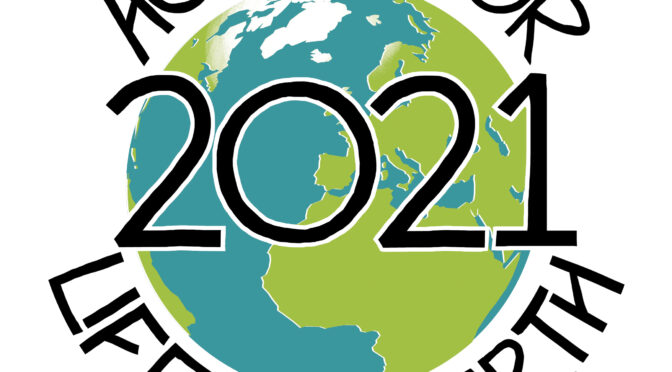
Annual NJPN Conference Booking Form
Booking forms now available for NJPN Conference 2021
Click here for more information
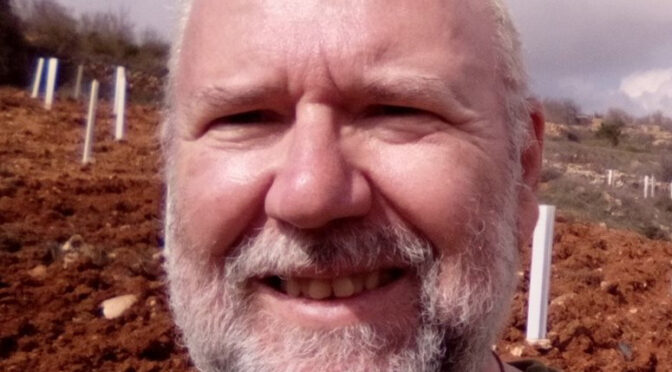
NJPN Comment in the Catholic Universe: Geoff Thompson: NJPN Annual Conference
The next annual conference of the National Justice and Peace Network (NJPN) will be held at The Hayes Conference Centre, Swanwick, Derbyshire 23-25 July 2021. Yes, it’s a bit of a leap of faith in the context of the pandemic, but the planning group feels that the issues of the conference should not be postponed for another year.
Read more:
Geoff Thompson NJPN Annual Conference

Report from NJPN AGM and November Open Networking Meeting
What are you seeing? What do you want to see?
These were questions posed by Rev. Ian Rutherford from Greater Manchester Homelessness Action Network at the November 2020 open networking meeting and AGM. Around 40 participants were reminded of the words of Isaiah where we are explicitly told what is required of us. We have the assurance that:
“The LORD will guide you always…………………… you will be called Repairer of Broken Walls, Restorer of Streets with Dwellings” (Isaiah 58;11-12)
Of deep concern to those present was evidence of the homeless crisis all around us whenever we walk the streets of any town or city and ask how our Church should respond. Ian was very clear that no one sector can solve the problem, it is everyone’s issue. The solution requires committed partnerships. In developing a strategy for action Ian suggested we work on the ‘4Rs’ Reduction – considering causes and taking appropriate action involving political campaigning. Respite – providing safe places, Recovery – providing ongoing support, Reconnection – enabling people to lead meaningful lives within the community. Ian suggested that generally churches focus more on providing respite, which meets the immediate need for shelter, but we must recognise this is part of a much more complex problem and a holistic vision is required. Ian suggested the possibility of faith groups creating networks of support for vulnerable families. Ian recognised the fact that there are many groups offering compassionate support to vulnerable families and individuals but stated that there is a crying need for systemic change, and we must raise our voices against injustice and suggested that campaigning is key to effecting meaningful change. So where do we begin? Ian suggested we learn harsh lessons from Covid and campaign for an increase in mandatory universal credit, call for an integrated housing policy with a focus on providing more social and affordable housing, which would include an effective homeless prevention strategy, a more integrated health and well-being policy taking account of the need for more sustained mental health support. We should be working on the premise that intervention and recovery leads to prevention. There is also the major issue of those stuck in an unfair and failing structure with no recourse to public funding. People of faith must speak up for those who have no voice in the public arena.
So, what do we see? Constant scapegoating of the ‘other’ within our society, hostility, inaccurate perceptions largely as a result of fear of the unknown exacerbated by negative and inaccurate reporting of facts. What are we going to say to those who say ‘we have to look after our own? On a more positive note we see many people of good will who feel helpless and in need of a good ‘steer’ (maybe this is where we should be shouting the loudest and reminding ourselves of the gospel imperative) We must share the ‘good news stories’ Maybe we should be taking more seriously the impact of what Pope Francis is demanding of the followers of Christ.
So, where do we go from here? We are fortunate that we have the freedom to decide.
Anne Peacey
Newsletter article
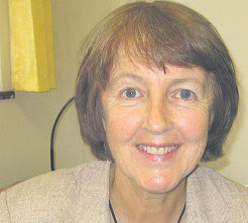
NJPN Comment in the Catholic Universe – Barbara Kentish : White privilege
‘White privilege’ is the notion I shall retain from 2020. The Black Lives Matter explosion had repercussions for all who have suffered racism, and for those like myself who have worked for anti-racism for decades. “It has brought back all those incidents of pain, anger and self-doubt that we had buried and put behind us,” said one black friend. “We’re reliving the trauma.” I, a white, felt some weariness. Many obvious things had been suggested before more black role models for our young people, recognition of black history in mainstream education, more black religious/cultural imagery, more black leaders. I can think of many reasons for the failures of anti-racists like me: unwillingness to confront injustice; economic disasters hitting black and ethnic minorities the hardest; xenophobic fury encouraged by right-wing groups, and so on. Another reason is indifference and laziness among whites, however. What a wake-up call, that the generation of young black people I myself might have once taught are becoming more vocal about racism. Reni Eddo-Lodge, author of the best-seller, Why I am no longer talking to white people about race, went to a Catholic school near where I taught. She is wounded by the blithe carelessness of white friends, indifferent to the history of slavery. My British-born friend with Jamaican parents has spent years as head of a deprived South London primary school. She tells me that she still attends teacher meetings with her inexperienced white male deputy only to find that he is assumed head, rather than herself. Such casual racism is part of white privilege, or in religious language, culpable ignorance. One black friend talks about the pervasive suspicion he encounters: the crime of ‘driving while black’, the stop-and-search, the casual assumption that black equals criminal. Recently athlete Bianca Williams and her partner were dragged from their car and separated from their baby, under stop and search powers. What can black people do? Have the energy and patience to keep on challenging white privilege. Where can white people start? Learn, urgently, about black history, not just in Black History Month, but all year round, in school and parish; listen with humility to the experiences of black neighbours and parishioners. A few of us, black and white, have produced a 2021 calendar celebrating Africans in Northern England to challenge the all-white view of Northern history. What a great learning experience for me!
For copies contact barbarakentish@talktalk.net.
Barbara Kentish White privilege
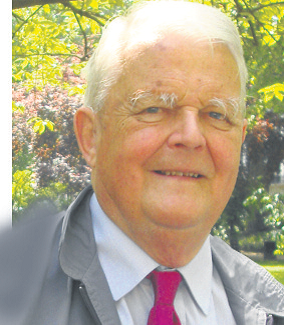
NJPN Comment in the Catholic Universe – Bruce Kent: Good News and Bad News
NJPN Comment in the Catholic Universe – Bruce Kent: Good news and bad news
In many ways the end of 2020 is a gloomy time. Covid is on an upward move, with already over 70,000 deaths in this country alone. Worldwide, hundreds of thousands more. Aged 91, I am told to be very careful. Neighbours keep at a distance. My admiration for those brave people – doctors, nurses, and workers of all sorts in the NHS – is unlimited. A quick dash around the local park is all I am allowed to manage. Sunday Mass is possible but only if zoomed in from somewhere else. That’s enough gloom for the moment. There IS great news for the whole world, but it doesn’t seem to have been noticed by very many. On Friday 22nd January an international treaty comes into force. The possession and deployment of nuclear weapons will become illegal in over 120 countries which have signed up to the new Treaty so far. The nine countries now possessing nuclear weapons will have to be careful where and how they move them. That is a new logistical problem. More important, the message is now clear. About two-thirds of the world thinks it is illegal to have them at all. In our British case it is stupid as well. We boast about having independent nuclear weapons. What an illusion. We do make those mass murder warheads, but we have to borrow the missiles on which to put them from the United States. It’s as ‘independent’ as a family car for which one has to rely on some distant neighbour for the wheels! Pope Francis has shone a very powerful light on the immorality of nuclear weaponry. He has gone far beyond rejecting the actual use of such weapons, as other Popes have done before. In November 2017 at a meeting in Rome he went much further: “If we take into account the risk of an accidental detonation as a result of error or any kind, the threat of their use, as well as their very possession is to be firmly condemned.” Pope Francis tells us that “security” based on nuclear weapons is an immoral illusion. Real human security is about food, health, human rights, and opportunities for everybody on the planet. Let us follow Pope Francis and take positive action in 2021 to get our government to sign up to the new treaty.
Bruce Kent is a vice-president of both Pax Christi and the Campaign for Nuclear Disarmament. Pax Christi England and Wales celebrates Peace Sunday on 17th January. See https://paxchristi. org.uk/peace-sunday-2021
Bruce Kent-Good News and Bad
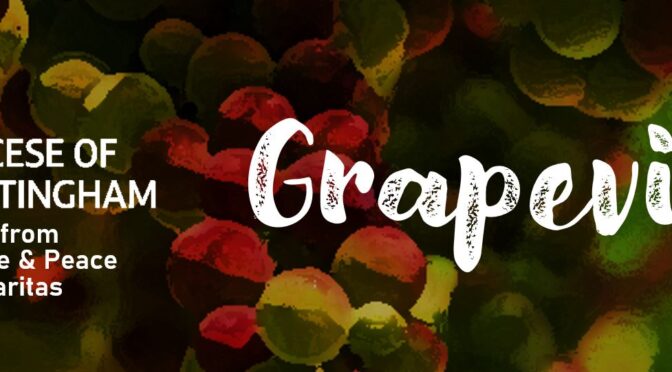
Latest news from Nottingham Diocese Justice and Peace and Caritas
Latest news from Nottingham Diocese Justice and Peace and Caritas
In this edition of Grapevine we invite you to join Caritas Discovery, a series of online ‘drop-in’ workshops through early 2021. Behind the practical focus of each workshop will lie questions like:
What has changed? What still needs to change?
Who am I, and who are we, after this time of distancing?
What new gifts has the Spirit germinated in me?
Where am I needed? What will be our mission now?
And how can we make ready, lamps lit and awake for the birth of a better world?
We look forward to seeing you at one of our workshops in January.
Paul (Programme Leader for Social Action)
Link: https://mailchi.mp/da72c7ed3cef/grapevine-1-news-from-adult-formation-justice-peace-and-caritas-5323926?e=bdc28abc62
NJPN Comment in the Catholic Universe –– Henrietta Cullinan: Clothing and Justice
NJPN Comment in the Catholic Universe –– Henrietta Cullinan: Clothing and Justice
Recently, two retail giants, Debenhams, with stores in 240 high streets, and Arcadia Group, owner of Top Shop among many others, went into administration, putting tens of thousands of shop workers, mostly women, at risk of losing their jobs
.
Read more here NJPN Comment 9th December

Latest News from Lancaster Faith and Justice
Latest News from Lancaster Faith and Justice
The latest copy of the December F&J E-Bulletin is now available
I hope you will be able to take the time to read and share the newsletter.
Download here:
Lancaster FJ December 2020

NJPN Comment in the Catholic Universe – Rob Esdaile – Cacophony or Harmony: Which Future?
The latest NJPN Comment in the Catholic Universe – Rob Esdaile – Cacophony or Harmony: Which Future? can be found by clicking the link below
NJPN Comment By Rob Esdaille











